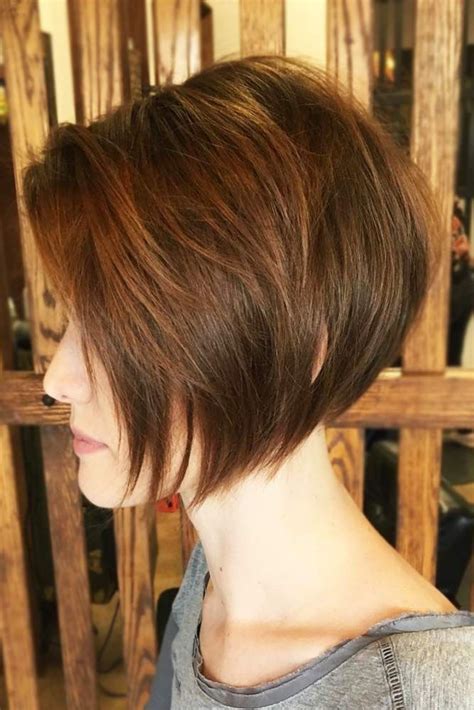Learn to understand, identify triggers, and implement mindfulness to replace bad habits with healthier alternatives. Seek professional help if needed. Boost your mental and physical well-being now.
Understanding the Habit
Contents
One common habitual behavior that many people engage in without even realizing it is playing with hair. This can include twirling hair around a finger, pulling at split ends, or constantly running hands through hair. Often, this habit is a soothing mechanism that provides comfort or relief in times of stress or anxiety. Understanding the habit involves recognizing the triggers that prompt this behavior, as well as the underlying reasons for engaging in it.
It’s important to identify the triggers that lead to the habit of playing with hair. This could be anything from feeling anxious before a big presentation to being bored during a long meeting. Once the triggers are recognized, it becomes easier to implement mindfulness practices to combat the impulse to play with hair. Mindfulness practices can include deep breathing exercises, meditation, or simply taking a moment to focus on the present moment and ground oneself.
Replacing the habit of playing with hair with a healthier alternative is also a crucial step in breaking this behavior. This could involve keeping hands busy with a stress ball or fidget cube, or finding a new activity to engage in during times of stress instead of resorting to playing with hair. Seeking professional help from a therapist or counselor can also be an effective way to address the underlying issues that contribute to the habit of playing with hair.
Identifying Triggers
When aiming to break the habit of playing with your hair, it’s important to first identify the triggers that lead you to engaging in this behavior. These triggers may differ from person to person, but common triggers include stress, boredom, anxiety, or even just being lost in thought. By understanding the specific situations or emotions that prompt you to play with your hair, you can begin to take proactive steps to address these triggers.
One way to identify your triggers is to keep a journal and make note of the times when you catch yourself playing with your hair. Take note of your surroundings, your emotions, and any patterns you notice. This can help you to better understand the underlying reasons behind the habit and take the necessary steps to address them.
It’s also important to be mindful in the present moment and pay attention to your actions. When you find yourself playing with your hair, take a moment to pause and reflect on what you were feeling or thinking at that time. This can provide valuable insight into the triggers that prompt this behavior.
In addition, consider seeking the input of those close to you who may have observed your hair-playing behavior. They may be able to provide perspective on when and why they have noticed you engaging in this habit, helping you to gain a deeper understanding of your triggers. By identifying these triggers, you can take the first steps toward breaking the habit and promoting healthier behaviors.
Implementing Mindfulness Practices
Implementing mindfulness practices can be a beneficial way to stop playing with your hair. Mindfulness involves becoming more aware and present in the moment, which can help you to recognize when you are engaging in the habit of playing with your hair. One mindfulness practice that can be helpful is deep breathing. Taking deep breaths and focusing on the sensation of the breath can help to bring your attention back to the present moment and away from the urge to play with your hair.
Another mindfulness practice that can be effective is body scanning. This involves mentally scanning your body from head to toe, noticing any tension or sensations you may be experiencing. By bringing awareness to your body, you can become more attuned to the habit of playing with your hair and take steps to interrupt the behavior.
Practicing mindfulness meditation can also be helpful in breaking the habit of playing with your hair. Taking time each day to sit quietly and focus on your breath or a specific point of focus can help to train your mind to be more attentive and less reactive. This can make it easier to resist the urge to play with your hair when it arises.
In addition to formal mindfulness practices, incorporating mindfulness into your daily activities can also be effective. For example, when you are washing your hair or brushing it, pay close attention to the sensations and movements involved, rather than allowing your mind to wander. This can help to break the automatic nature of the habit and make you more conscious of your actions.
Replacing the Habit with a Healthier Alternative
Breaking a habit can be difficult, but it’s not impossible. Identifying the triggers that lead to the habit is an important first step. Once you understand what causes you to play with your hair, you can begin to implement mindfulness practices to help you become more aware of the habit as it’s happening.
For example, if stress is a trigger for you, you might replace the habit of playing with your hair with a healthier alternative, such as deep breathing exercises or going for a walk to clear your mind. By finding a new, healthier way to cope with your triggers, you can begin to break the cycle of the old habit.
It’s important to remember that breaking a habit takes time and effort, and it’s okay to seek professional help if you’re struggling. Talking to a therapist or counselor can provide you with support and guidance as you work to break the cycle of your habit and replace it with healthier alternatives. Don’t be afraid to reach out for help if you need it.
Seeking Professional Help if Needed
If you have been struggling to stop playing with your hair despite your best efforts, it may be time to consider seeking professional help. A trained therapist or counselor can provide valuable insight and support as you work to break the habit. They can help you uncover any underlying issues that may be contributing to the behavior and develop a personalized plan to address it. Seeking professional help can also provide the accountability and encouragement you need to stay on track with your efforts to stop the habit.
When considering professional help, it’s important to find a practitioner who has experience working with individuals struggling with compulsive behaviors or body-focused repetitive behaviors like hair playing. Look for someone who uses evidence-based approaches and techniques that have been shown to be effective in helping individuals overcome these types of habits. This may include cognitive-behavioral therapy, habit reversal training, mindfulness-based interventions, or other specialized treatment approaches.
Working with a professional can also help you address any co-occurring mental health concerns that may be influencing your hair-playing habit. These could include anxiety, depression, obsessive-compulsive disorder, or stress-related issues. By addressing these underlying challenges, you can improve your overall well-being and reduce the likelihood of engaging in the habit.
Remember, seeking professional help is not a sign of weakness, but rather a proactive step towards regaining control over your behavior and improving your quality of life. By collaborating with a trained therapist or counselor, you can gain the guidance and support you need to successfully overcome the urge to play with your hair and make positive changes in your daily life.












